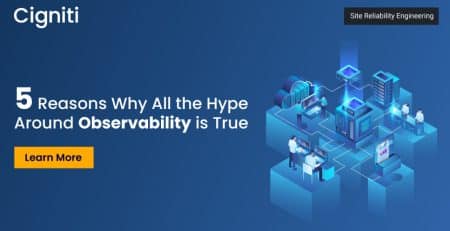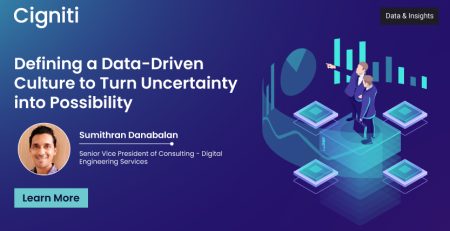Simplify Data Integration with Artificial Intelligence
Data-driven decision-making is fundamental for any business that wants to thrive in today’s cut-throat environment. In fact, there is enough evidence today that proves that data-driven decision-making powered by artificial intelligence (AI) platforms can help businesses expedite their operations, thus saving valuable time and money.
Such decisions involve leveraging past information to predict the challenges and opportunities that await an enterprise in the future.
Data integration is the combination of technical and business processes that create useful datasets for business intelligence and analytics from diverse traditional and non-traditional sources of data.
Data collected from various on-premise and cloud sources is integrated as part of a holistic data integration solution to enable DataOps’ effective, enterprise-ready data pipeline. Data flow from these source systems and the procedure to collect, cleanse, normalize, and store the data for processing are defined by data architecture.
Hindrances to Effective Data Integration
Integrating data from relational databases, streaming data services, and several other real-time sources have grown increasingly challenging for businesses. In order to extract hidden business insight, well-designed data integration processes guarantee that the data is controlled, governed, and trusted. Attempts at effective data integration may be inhibited by:
- The challenges of controlling data coming from many sources
- Multiple issues arising from managing different data integration tools
- A business environment that allows multiple data handlers to access, edit, copy, and duplicate data
- The sluggish movement of data from data lakes and the Cloud
Businesses must start thinking about data as a corporate asset rather than a by-product of the business to start avoiding some of these hindrances. Beyond design considerations, using cutting-edge technologies like AI has been successful in reducing the number of large data integration challenges.
How AI Plays a Key Role in Data Integration
According to the Harvard Business Review, over the next ten years, AI will contribute $13 trillion to the global economy, and businesses that succeed at deploying AI across the enterprise would find themselves at a considerable advantage.
AI and machine learning (ML) technologies have been demonstrated to increase overall data integration project results in addition to significantly reduce the heavy lifting frequently involved with data integration initiatives. AI in the data integration platform help change the way businesses make decisions in the following ways:
- Faster data mapping leading to quicker decision making: With the use of AI-enhanced solutions, users may map customer data in minutes as opposed to months. Using a system metadata catalogue and a prebuilt data integration template, AI may automate the generation of data transformation mapping. Decision-making and data transformation are sped up as a result. Even non-technical business people may develop intelligent data mappings using ML algorithms thanks to AI-data mapping tools. This will improve the data mapping process’ accuracy as well as its speed. IT personnel may focus on more valuable tasks while business users who are not technically savvy map and integrate data.
- Better processing of huge data: Users may quickly and efficiently ingest, integrate, and analyze big data by employing machine learning methods. When processing massive data, legacy systems lack precision and speed. On the other side, machine learning may enable business users to dissect huge data structures and create data models without a lot of code.
- Enhance intelligence through autonomous learning: As AI automates the creation of data transformation mapping in the Extract, Transform and Load (ETL) process, business users become more involved in learning the patterns and hidden trends from the carefully curated large datasets and applying statistical modeling to them in order to derive accurate business insights from those data sets.
Closing Lines
AI-enhanced data integration is progressively automating the development of data pipelines and organization-wide application flow. Data integration tools now have access to large volumes of varied data thanks to big data storage (HDFS/ Hive/ Cloud storage). The big data storage enables its embedded recommendation engine to intuitively deduce the data structure components from this and use the same for automating the repetitive and redundant data integration tasks.
To meet the rising demand for data integration pipelines, the AI engine is gradually enhancing its inferred and tagging analytical logic, metadata discovery framework, and learned knowledge base.
Cigniti helps global enterprises to manage various forms of data from their applications, systems, databases, data warehouses, digital data, or even offline data. We provide a single process for integrating all the data into a single hub to prevent data silos and assure that the appropriate information is made available to the appropriate user. With the help of our data integration services, you can maximize the value of your data, improving both operational effectiveness and customer satisfaction.
To know more about our data integration capabilities, visit Cigniti Digital Engineering.





Leave a Reply